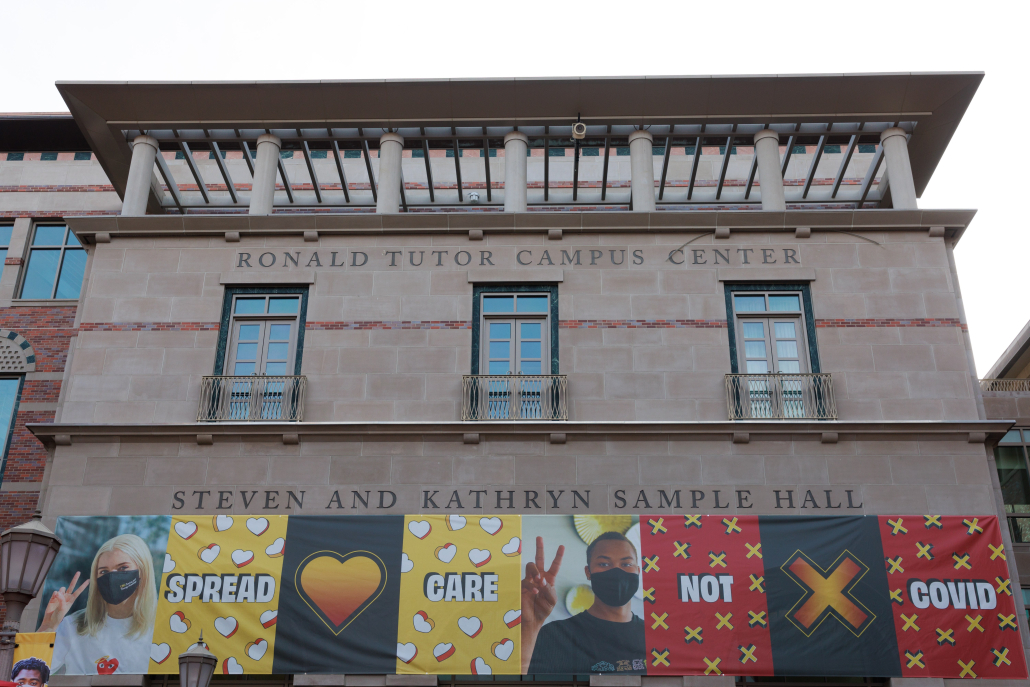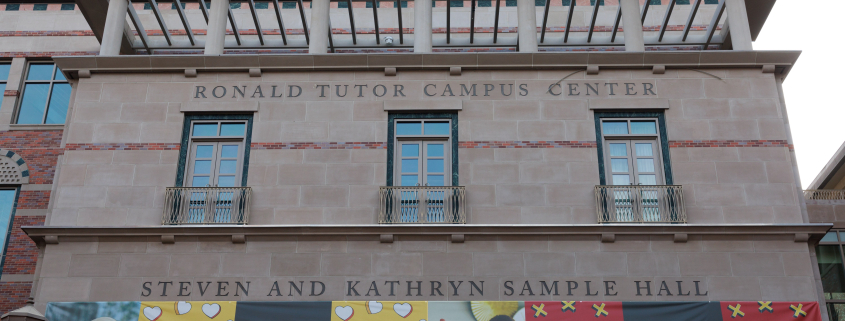USC to keep mask mandate, positivity rate decreases

USC and Los Angeles County will not presently remove indoor mask mandates despite California state officials announcing Monday that they will lift the mandate for fully vaccinated individuals Feb. 15.
The University follows the strictest government guidelines — in this case, the L.A. County Department of Public Health’s guidelines. L.A. County will look at metrics, including coronavirus transmission and hospitalizations, to evaluate the mandate, said Chief Health Officer Dr. Sarah Van Orman in a student media briefing Tuesday.
“We will need to stay aligned with Los Angeles County because that’s actually what we’re subjected to, but overall, what we’re seeing here on campus, in L.A. County and in the state is really reassuring,” Van Orman said. “Everything is heading in the right direction.”
The University is still looking into whether they will lift their mask mandate in the future, but it is likely they will remain aligned with L.A. County, Van Orman said.
If hospitalization rates remain below the 2,500 mark for a week, L.A. County will lift the mask mandate for large outdoor events, said L.A. County Public Health Director Barbara Ferrer at a Board of Supervisors meeting Tuesday.
Coronavirus numbers continue to decrease, with a positivity rate of 3.3% for students and 1.9% for employees compared to 5.73% and 4.72% from last week, respectively.
“We’re still much higher than we were during the fall semester when we had a peak of less than 100 cases a week and a positivity [rate] much less than 0.5%, but, at this point, we’re cautiously optimistic that those numbers are going to continue to trend down in the right direction,” Van Orman said.
With multiple large public events held in L.A. including the recent NASCAR Busch Light Clash on Sunday and the Super Bowl next weekend, there is currently some concern surrounding transmission at these events, Van Orman said.
The University intends to encourage students attending the Super Bowl to receive vaccinations and boosters while understanding that the risks are decreased because it is an outdoor event and the omicron surge is at significantly lower levels.
“The guidance we’re really issuing to people relative to the Super Bowl, though, is something between the extreme caution we had a year and a half ago and no caution,” Van Orman said.
USC Student Health also recommends masking indoors, staying home when sick and taking rapid antigen tests before attending large events, such as the Super Bowl. Free rapid antigen tests are available through a federal program that allows every household to order four free rapid tests.
The University has made preparations to ensure adequate housing for students needing to quarantine, despite the influx of travelers for the Super Bowl.
Booster rates are also increasing — with nearly 75% of students having received their shots — contributing to the declining positivity rate.
“It really reflects the combination of the highly vaccinated population, the boosted population, combined with the testing,” Van Orman said. “We’re really just not seeing significant outbreaks among students.”
This week, USC will notify students who have not received the booster but are eligible to recieve it about holds on their registrations. Van Orman said the University is “strongly” working on getting students boosted.
“There’s still a lot of misinformation about boosters — that if you had COVID, you don’t need a booster, or that boosters are dangerous —but there’s really great data that just came out about how protective the boosters were, specifically with omicron,” Van Orman said.

